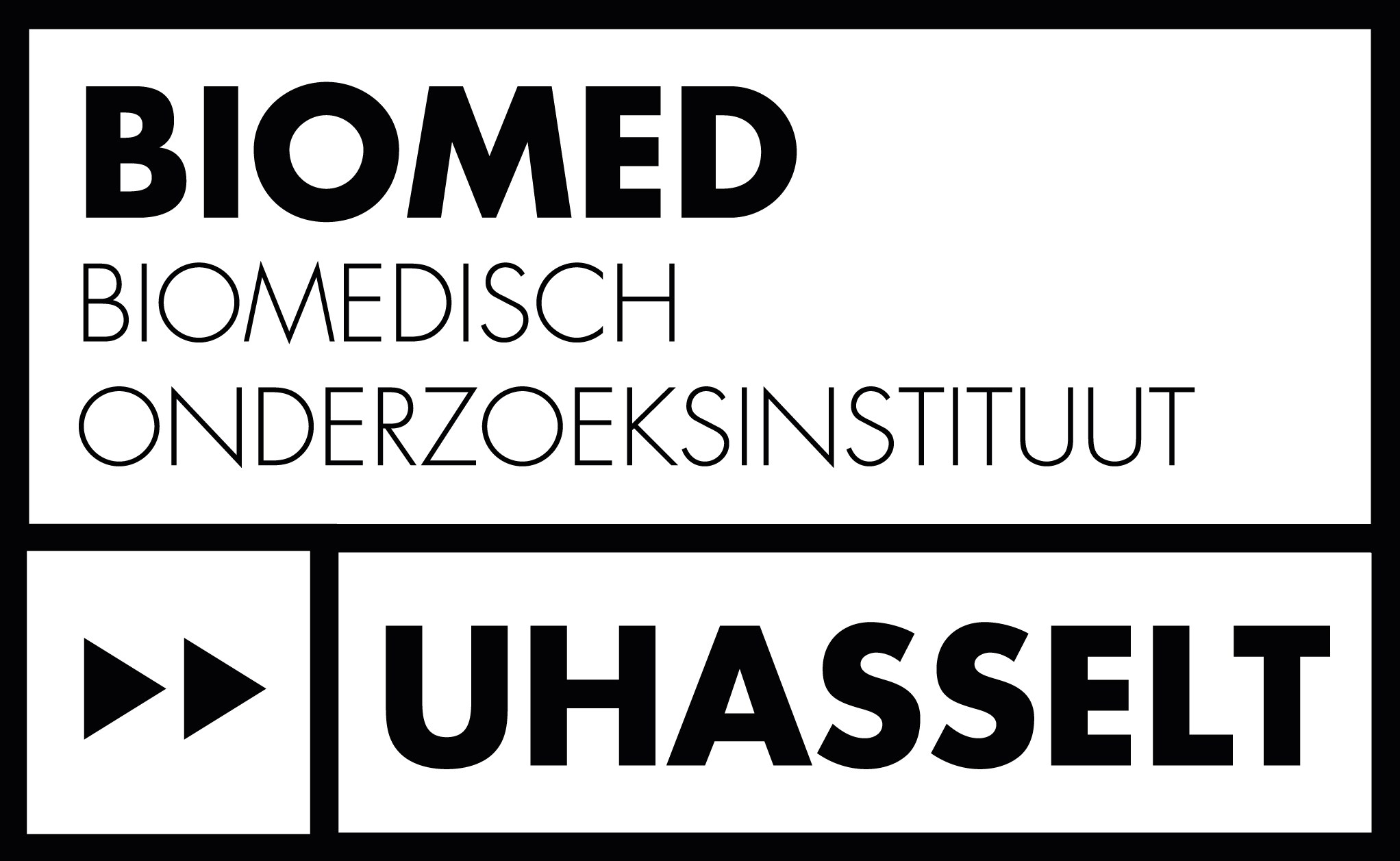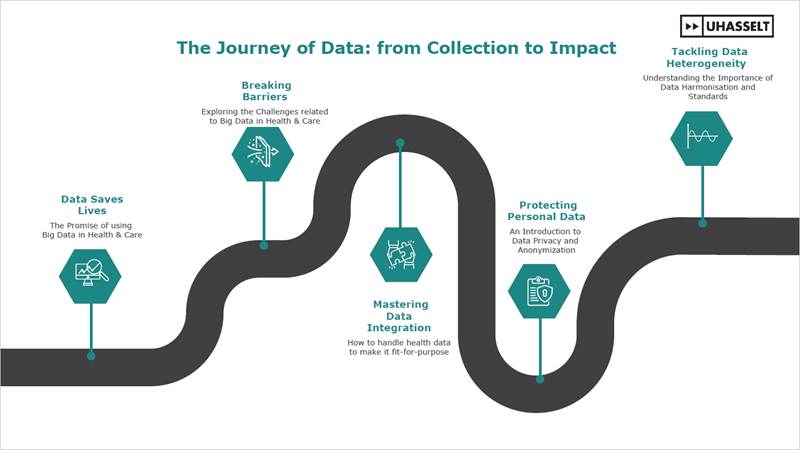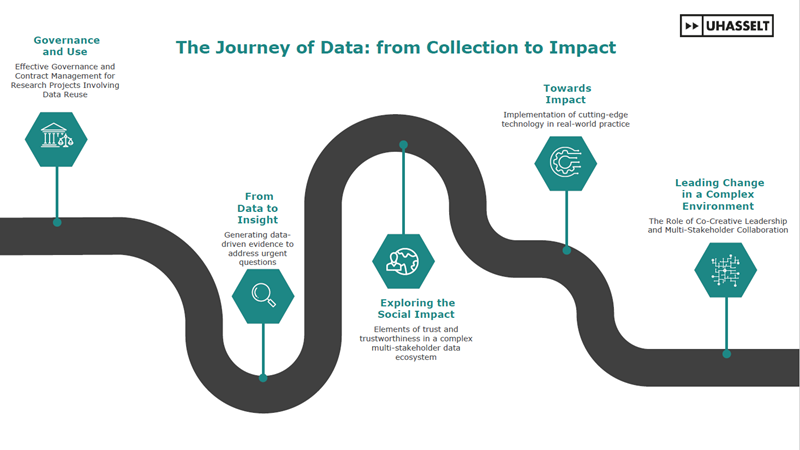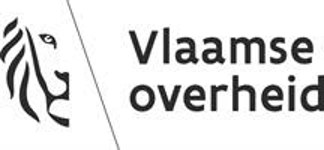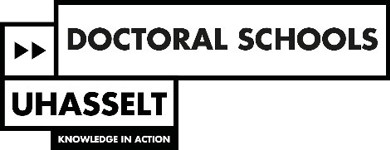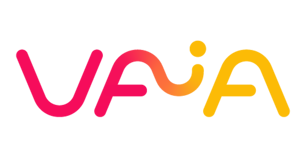Big Data for Health and Care
Summer School - 1 st edition
The journey of Data: from Collection to Impact
22-26 May 2023
UHasselt Campus Diepenbeek


Thank you for joining us!
The use of big data has the potential to revolutionize the way we approach healthcare.
With the increasing availability of healthcare data, we can now leverage this data to gain new insights into disease prevention, diagnosis, and treatment. Our Summer School on "Big Data in Health and Care" provides an excellent opportunity to gain a comprehensive understanding of these topics, from data acquisition and preprocessing to analysis and governance.
Our Summer School combines:
- Invited lectures
- Informative sessions
- Breakout sessions
- Dynamic and engaging
By participating in this course, you'll be equipped with the knowledge and skills to harness the power of big data in healthcare, making a meaningful impact on patient outcomes and the healthcare industry as a whole.
Program
|
Time |
Monday |
Tuesday |
Wednesday |
Thursday |
Friday |
|---|---|---|---|---|---|
|
Morning session |
Data Saves Lives |
Mastering Data Integration |
Tackling Data Heterogeneity |
From Data to Insight |
Towards Impact |
|
Inspiring Lunch Plenary |
Industry perspective |
Biomedical research perspective |
Healthcare provider’s perspective |
Revalidation research perspective |
Behavioral sciences perspective |
|
Afternoon session |
Breaking Barriers |
Protecting Personal Data |
Governance and use |
Exploring the Social Impact |
Leading Change in a Complex Environment |
Monday 22/05/2023
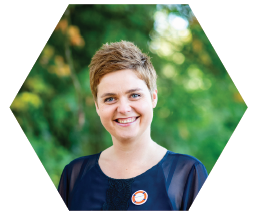
Liesbet Peeters
Session 1: Data Saves Lives
The Promise of using Big Data in Health & Care
#StartWithWhy - We kick-start the summer school by exploring the transformative potential of big data in healthcare. From improving patient outcomes to reducing healthcare costs, big data has the potential to revolutionize the way we approach healthcare. We will explore inspiring success stories of how the use of health data has already transformed our healthcare system, showcasing real-world examples of big data in action. By the end of this session, you'll have a deeper understanding of the importance of big data in healthcare and how it's helping to save lives.
Session 2: Breaking Barriers
Exploring the Challenges related to Big Data in Health & Care
This session will explore the barriers that are preventing us from fully realizing the potential of cutting-edge technologies such as big data and artificial intelligence (AI). These barriers may include issues related to data privacy and security, ethical concerns, technical limitations, and societal and cultural factors. We provide an opportunity for participants to share their perspectives on these issues, exchange ideas, and explore potential solutions to overcome the barriers. By the end of the session, participants will have a better understanding of the challenges associated with big data and AI, as well as ideas for potential paths forward to overcome these barriers moving forward.

Liesbet Peeters
Tuesday 23/05/2023
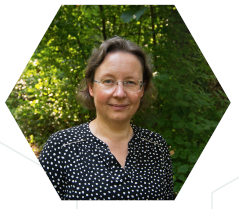
Noëlla Pierlet
Session 3: Mastering Data Integration
How to handle health data to make it fit-for-purpose
In this session, participants will learn about data integration, its importance, and how it relates to clinical care. We explore how data is acquired in clinical care and understand the common problems and pitfalls in data integration. The session will also cover generic data integration approaches that can be used to integrate different data sources. By the end of the session, participants will be able to describe data integration approaches and understand the role of data quality in achieving reliable and accurate results in clinical care and research.
Session 4: Protecting Personal Data
An Introduction to Data Privacy and Anonymization
This session will emphasize on developing the understanding of data privacy and anonymization. We will walk you through the different types of data that require protection and explore various techniques for data anonymization and their objectives. Furthermore, we will give a high-level introduction of the principles of the General Data Protection Regulation (GDPR). Finally, you will be provided with an opportunity to participate in hands-on exercises focusing on data anonymization and explore different techniques in more depth.
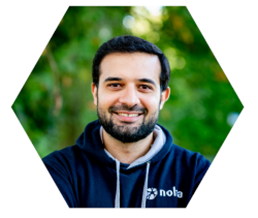
Hamza Khan
Wednesday 24/05/2023
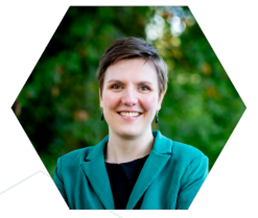
Tina Parciak
Session 5: Tackling Data Heterogeneity
Understanding the Importance of Data Harmonisation and Standards
This session aims to provide participants with a comprehensive understanding of data harmonization, its importance, and the different types of harmonization methods (general, retrospective, and prospective). Participants will learn about the various standards used in health and care for prospective harmonization and reflect on the interoperability of data standards in health and care, as well as the challenges that arise. Moreover, the session will cover the concepts of minimal/core datasets and common data models, which are essential components of successful data harmonization. By the end of the session, participants will have the knowledge and skills to apply data harmonization techniques effectively in their work, which will improve data quality, facilitate data analysis, and support better decision-making in health and care.
Session 6: Governance and Use
Effective Governance and Contract Management for Research Projects Involving Data Reuse
Here, we focus on the topic of governance in research projects that involve data reuse. The session will cover various aspects of governance, including ethics, risk management, compliance, and administration, as they relate to data reuse. By the end of the session, participants will have a thorough understanding of the importance of governance in research projects involving data reuse, including the key strategic decisions that need to be made, the importance of contract management, and the various governance and use concepts that are involved. You will be better equipped to manage these projects and ensure their success.
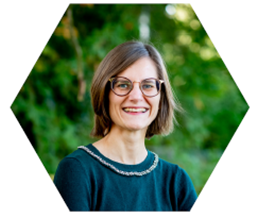
Lotte Geys
Thursday 25/05/2023
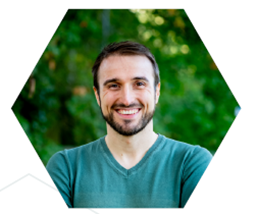
Marcel Parciak
Session 7: From Data to Insight
Generating data-driven evidence to address urgent questions
This session is designed to provide participants with an understanding of how to generate data-driven evidence from data to address urgent questions. Participants will learn how to generate insights from data and use visualization techniques to analyze and interpret data. The session will introduce concepts of artificial intelligence and its role in generating insights from data. By the end of the session, participants will have the skills and knowledge to generate insights from data, apply visualization techniques to analyze and interpret data, and understand how AI can be used to generate data-driven evidence to address urgent questions.
Session 8: Exploring the Social Impact
Elements of trust and trustworthiness in a complex multi-stakeholder data ecosystem
Besides amazing opportunities, the use of big data poses significant challenges related to trust and bias. This session explores the concept of trust among stakeholders involved in the secondary reuse of health data. We will also examine the importance of a social compact in the context of health data, and the different components that make up such a compact. Through interactive discussions, participants explore strategies for building trust among stakeholders.
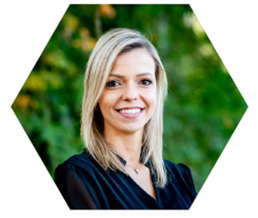
Sofie Aerts
Friday 26/05/2023
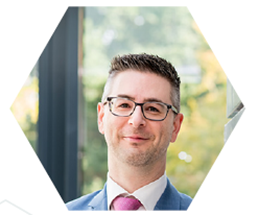
Jochen Bergs
Session 9: Towards Impact
Implementation of cutting-edge technology in real-world practice
Healthcare organizations are facing numerous challenges, including increasing care needs and tightening budgets. To address these challenges, organizations must improve their processes to ensure quality of care for patients. However, simply identifying areas for improvement is not enough. Organizations must implement changes that lead to measurable improvements in care delivery. This is where implementation science comes in, as it is a critical approach that can help healthcare organizations identify opportunities for process improvement, overcome barriers to change, and implement evidence-based interventions that lead to measurable improvements in care delivery. By applying implementation science principles to patient safety and patient flow management, organizations can enhance patient outcomes, improve the patient experience, and ensure the delivery of high-quality care in the face of challenging healthcare environments.
Session 10: Leading Change in a Complex Environment
The Role of Co-Creative Leadership and Multi-Stakeholder Collaboration
(Co-shared session with Sven De Weerdt)
Leadership in today's rapidly changing world demands new ways of thinking and acting. This session explores the challenges of leading in a complex environment and how co-creative leadership and multi-stakeholder collaboration can help overcome these challenges. We will discuss how to build trust in human interactions and avoid the "blind spots" that can undermine successful leadership. Throughout the session, we will use real-world examples to illustrate the 8 Steps for Leading Change, providing practical guidance on how to navigate the complexities of leading in a changing environment. By the end of the session, attendees will have a better understanding of how to foster multi-stakeholder collaboration, build trust in human interactions, and navigate the challenges of leading change in complex environments.
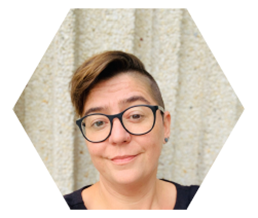
Ilse Vermeulen
Inspiring lunch plenary sessions
During the inspiring plenary lunch talks, experts will provide their personal insights related to big data in healthcare from their own unique perspectives, e.g. industry, health care professional, biomedical research and revalidation research. This will enable a more comprehensive understanding of the challenges and opportunities associated with big data in healthcare, and the various ways in which it can be utilized to improve patient outcomes and advance medical research. Our experts will tackle the following questions during their inspiring plenary lunch talks, each from their own perspective:
- Why big data in healthcare?
- What are the key challenges?
- Why should you care?

Meet our Speakers
Liesbet M. Peeters
Liesbet M. Peeters
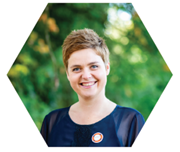
Prof. Liesbet M. Peeters is a renowned bio-engineer and Assistant Professor at UHasselt, who has dedicated her life to the field of biomedical sciences. She earned her Ph.D. in Biomedical Sciences, and her research focuses on the use of Big Data in Health and Care to improve patient outcomes.
Prof. Peeters firmly believes that data saves lives, and she envisions a world where every person receives timely and appropriate medical treatment. Her research is centered on the use of Real-World Data (RWD) to improve patient outcomes. RWD is defined as data derived from various sources associated with outcomes in a heterogeneous patient population, representing real-world settings. She is particularly interested in increasing the impact of RWD, given its potential to transform healthcare. However, handling and analyzing RWD is challenging and time-consuming, and this is where her research comes into play. She focuses on developing innovative tools and algorithms to overcome some of the key challenges associated with handling RWD.
Prof. Peeters is a pioneer in her field, and her contributions have been invaluable in advancing the use of RWD in healthcare. Her work has been recognized globally, and she is a strong advocate for the use of data-driven approaches to improve patient outcomes. #DataSavesLives is a hashtag she regularly uses in her research and social media to raise awareness on the importance of using data in healthcare.
Noëlla Pierlet
Noëlla Pierlet
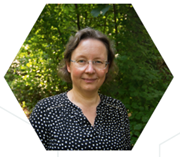
Noëlla Pierlet is the Head of the Data Science team at ‘Ziekenhuis Oost-Limburg’ in Genk. She has over 25 years of experience in medical IT: she started as a system administrator, changed to software developer, project lead, and finally a data scientist. One of her specialties is bridging the gap between physicians and engineers. She is a pro at translating complex medical jargon into language that technical people can understand and vice versa.
Noëlla firmly believes that qualitative, structured data is the foundation for improving patient care. Her passion for using data to drive change and enhance healthcare has led her to pursue a PhD within the biomedical data sciences research group where she researches how to improve data quality in real world data.
Hamza Khan
Hamza Khan
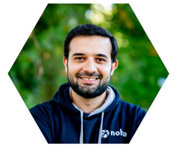
Hamza Khan completed his Bachelor's in Dental Surgery before pursuing a Master's degree in Public Health (MPH) in 2019. During his internship at the International Organization for Migration (IOM - Regional Office for EU/EEA and NATO, Brussels), he gained insight into the importance of data and robust statistical methods/machine learning in healthcare research.
After his experience at IOM, Hamza pursued a Master's degree in Cognitive Science and Artificial Intelligence (MCSAI) at Tilburg University, The Netherlands, which he completed in August 2020. He has since embarked on an interdisciplinary PhD at BioMed UHasselt and Department of Precision Medicine at UMaastricht, where he is researching biomarkers for disease progression in multiple sclerosis, as well as other areas such as data anonymization.
Tina Parciak
Tina Parciak
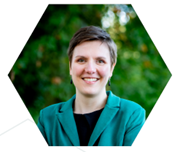
Tina Parciak has a background in Medical Informatics and has been part of the MS Data Alliance since its very beginning, bringing the topic of harmonisation of real-world data in MS forward.
Within her current PhD studies within the research group of biomedical data sciences at the Biomedical Research Institute and Data Science Institute at UHasselt, she is developing and orchestrating new technologies and strategies for harmonisation for real-world MS data sources. One of her research interests lies in the adaptability of the OMOP common data model (OHDSI) for real-world data coming from registries. She is the lead of the OHDSI Registry workgroup.
Lotte Geys
Lotte Geys
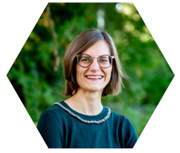
Lotte Geys has a background in biomedical sciences. She defended her PhD in 2017 at the University of Leuven and started working as clinical data manager afterwards. Since December 2019, she is working for the research group of Biomedical Data Sciences under supervision of Prof. Liesbet Peeters where she is currently employed as postdoctoral researcher.
Lotte has a bridgebuilding role between the worlds of biomedical sciences and data sciences and has expertise in governance and contract management when it comes to reuse of real-world health data for research.
Marcel Parciak
Marcel Parciak
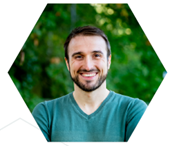
Marcel finished his applied computer science studies in 2017, earning a master's degree. Afterwards, he worked as a research associate at the medical data integration center of the university medical center Göttingen. During this time, he developed IT-infrastructures and worked as a health data engineer.
He joined the team in 2021 to develop AI methods and tools that accelerate the set-up of health data integration infrastructures, enabling clinicians and researchers to get the right data in the right format at the right place at the right time. Marcel's research interests include AI, data integration and health data science. He is an open-source enthusiast who aims to create open, collaborative, automated solutions.
Sofie Aerts
Sofie Aerts
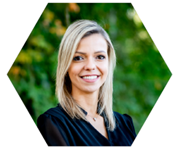
Sofie is a Master's graduate in Clinical Biomedical Sciences from Hasselt University. During her Master's education, she gained experience managing real-world data (RWD) at the University MS Centre Hasselt-Pelt and acquired insights into the current challenges related to it.
Since September 2022 Sofie joined the research group of Prof. Liesbet M. Peeters, who is also to co-promotor of her PhD. Sofie's PhD project is focused on developing a prognostication tool to assist neurologists in determining the prognosis and appropriate treatment strategy for people with Multiple Sclerosis. Her project involves both qualitative and quantitative research methods to develop a dashboard that can be implemented in the clinic. Sofie is used to collaborating closely with clinicians/healthcare providers in a hospital environment. She is thus eager to be part of the bridge between data scientists and the clinic within the research group's projects.
Jochen Bergs
Jochen Bergs
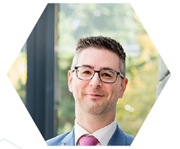
Prof. Jochen Bergs is a healthcare engineering professional and prehospital emergency nurse with a passion for patient safety. He is also an associate editor and has been dubbed the "Chief Imagination Officer" due to his innovative and creative approach to problem solving.
Throughout his career, Prof. Bergs has been dedicated to improving patient safety using both qualitative and quantitative methods. His background in prehospital emergency nursing has given him firsthand experience in identifying areas for improvement in patient care.
His unique perspective and dedication to patient safety has led him to become an associate editor, where he can share his expertise and knowledge with others in the healthcare industry. Despite his extensive knowledge and experience, Prof. Bergs remains passionate about "not knowing". He is constantly seeking new information and insights, always looking for ways to improve patient care and to make a positive impact in the healthcare industry.
Ilse Vermeulen
Ilse Vermeulen
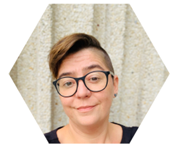
Dr. ir. Ilse Vermeulen is a Bio-engineer in Cell and Gene Biotechnology with a PhD in Medical Sciences from the Free University of Brussels (VUB), which she obtained in 2012. During her doctoral studies, Ilse focused on prediction models and epidemiological studies in the clinical biology of type I diabetes, which provided her with extensive experience in data processing and writing research articles for peer-reviewed journals.
For the past few years, Ilse has been working as a project manager at the University of Applied Sciences Leuven-Limburg (UCLL), where she was responsible for the respective focus lines "Environment & Health" and "Technology Enhanced Care".
In April 2022, Ilse joined the Research Group of Biomedical Data Sciences of Liesbet Peeters as a Staff Member and Project Manager to support the MS Data Alliance. Additionally, she leads the followup of other projects within the group, e.g. EBRAINS. Ilse is a vigorous creator, project enabler, and adept at transforming realworld data into real-world evidence.
Daan Aeyels
Daan Aeyels
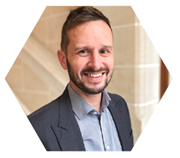
Daan Aeyels has a background in both healthcare and management, which allows him to relate clinical and business performance. He is experienced in development, implementation and evaluation of care programs within and across healthcare organizations. To do so, he applies scientific methods on innovation and change management. Lifelong learning provides an intellectual framework to continuous development of competences on:
- Organization and financing of health and healthcare
- Coordination and integration of healthcare providers (networks, health systems)
- Organization and evaluation of care trajectories, care programs and care processes
- Quality measurement & improvement
- Clinical and business performance optimization
- eHealth, HIT & EHR as health care integrator
He combines agile and best-in-class expertise with an out-of-the-box perspective on the delivery of healthcare. Diplomatic and negotiation skills result in a broad network within healthcare providers, academic and policy partners. Commitment, perseverance, communication and flexibility are some of his key words.
Esther Wolfs
Esther Wolfs
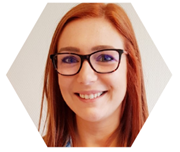
Prof. Esther Wolfs is a highly accomplished biomedical scientist, with a strong focus on stem cells and advanced imaging methods. She completed her Master's degree in Biomedical Sciences before pursuing a PhD at KULeuven, where she explored novel ways of optimizing the radiolabeling process to enable non-invasive imaging of stem cells in vivo over time.
After completing her PhD, Esther went on to become an Assistant Professor at UHasselt in 2018. Her current research includes "Future proof pathology for predictive medicine and disease prognosis based on tumor heterogeneity." Her work aims to provide a better understanding on the cellular composition of tumors in lung cancer. By developing new methods for automatic cell detection and mapping the microscopic composition of different tumors, this project aims to predict how patients will respond to a given therapy, leading to a more effective diagnosis and treatment.
Throughout her career, Esther has been highly regarded for her analytical and technical skills, as well as her ability to work collaboratively with colleagues from a wide range of backgrounds. She has published numerous articles in top-tier scientific journals, and her research has been recognized with a number of prestigious awards and honors. Overall, Esther Wolfs is a rising star in the field of biomedical science, and her contributions to the field are sure to have a lasting impact on our understanding of stem cell biology and tumor heterogeneity .
Peter De Jaeger
Peter De Jaeger
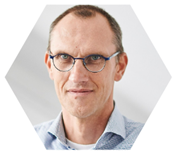
Prof. Peter De Jaeger is Chief Innovation Officer and leading RADar, the learning and innovation centre of AZ Delta. RADar was established within AZ Delta as a knowledge centre for healthcare where content is focused on research & innovation, professional training and learning, clinical studies, data access/use/sharing, events and partnerships.
Together with a highly skilled team, physicians and partnerships, RADar focusses today on embedding data-driven healthcare by developing and upgrading the hospital’s clinical data readiness and artificial intelligence and aiming at high quality international research.
Bruno Bonnechere
Bruno Bonnechere
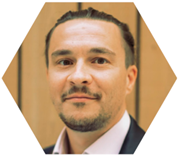
Bruno Bonnechère is an assistant professor at the Faculty of Rehabilitation and member of the Data Science Institute at the University of Hasselt. He holds a double PhD degree from the Université Libre de Bruxelles (Biomedical Sciences) and the Vrije Universiteit Brussel (Engineering Sciences), which allows him to have a medical and technical vision on the latest technological developments in the field of rehabilitation and healthcare. With a Master in Epidemiology and Biostatistics, he has conducted postdocs at the University of Oxford and the University of Cambridge, focusing on the development and validation of new technologies in rehabilitation, including machine learning and AI. He coordinates an international network of excellence on 'Technology-supported rehabilitation and innovation' funded by the FWO, and is actively involved in projects aimed at implementing rehabilitation in low- and middle-income countries using affordable and portable technology.
Sven De Weerdt
Sven De Weerdt
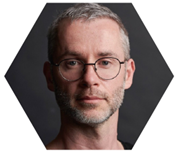
Sven De Weerdt started working at Hasselt University as assistant in Organizational Psychology and Research Methodology (1996-2005). In June 2003, he was allowed to become a Doctor of Psychological and Pedagogical Sciences at KULeuven and in 2005 he moved on to the European University College Brussels (EHSAL) and briefly became an affiliate researcher at the Center for Organizational and Personnel Psychology of the KULeuven. As a teacher and researcher, he has become increasingly fascinated by everything that makes deep learning and professional and personal development possible.
As a teacher of the Quality of Life course in the postgraduate program in Relation and Communication Sciences (UHasselt, from 2000 to the present), Prof. De Weerdt’s interest grew to engage more regularly in interactive and learning-oriented work with professionals, executives and other adults. Therefore, he decided to refocus his career to become a process facilitator at Kwadraet (Lodewijk de Raet Foundation) in 2007 (until 2010).2008 was the year Prof. De Weerdt started teaching Philosophy of Science to third-year Biomedical Sciences students and in 2014 he also started working part-time as a "coach" and "leadership developer" at UZLeuven. Very recently, he was appointed as guest professor for the subject 'Leadership in a changing world' in the new Master System and Process Innovation in Healthcare, in collaboration with Johan Hellings and Jochen Bergs (UHasselt), among others.
Sponsors
This Summer School is supported by the Vlaamse Overheid and the UH Doctoral Schools
Learning Material
A summary of all sessions is now available
Download Summary